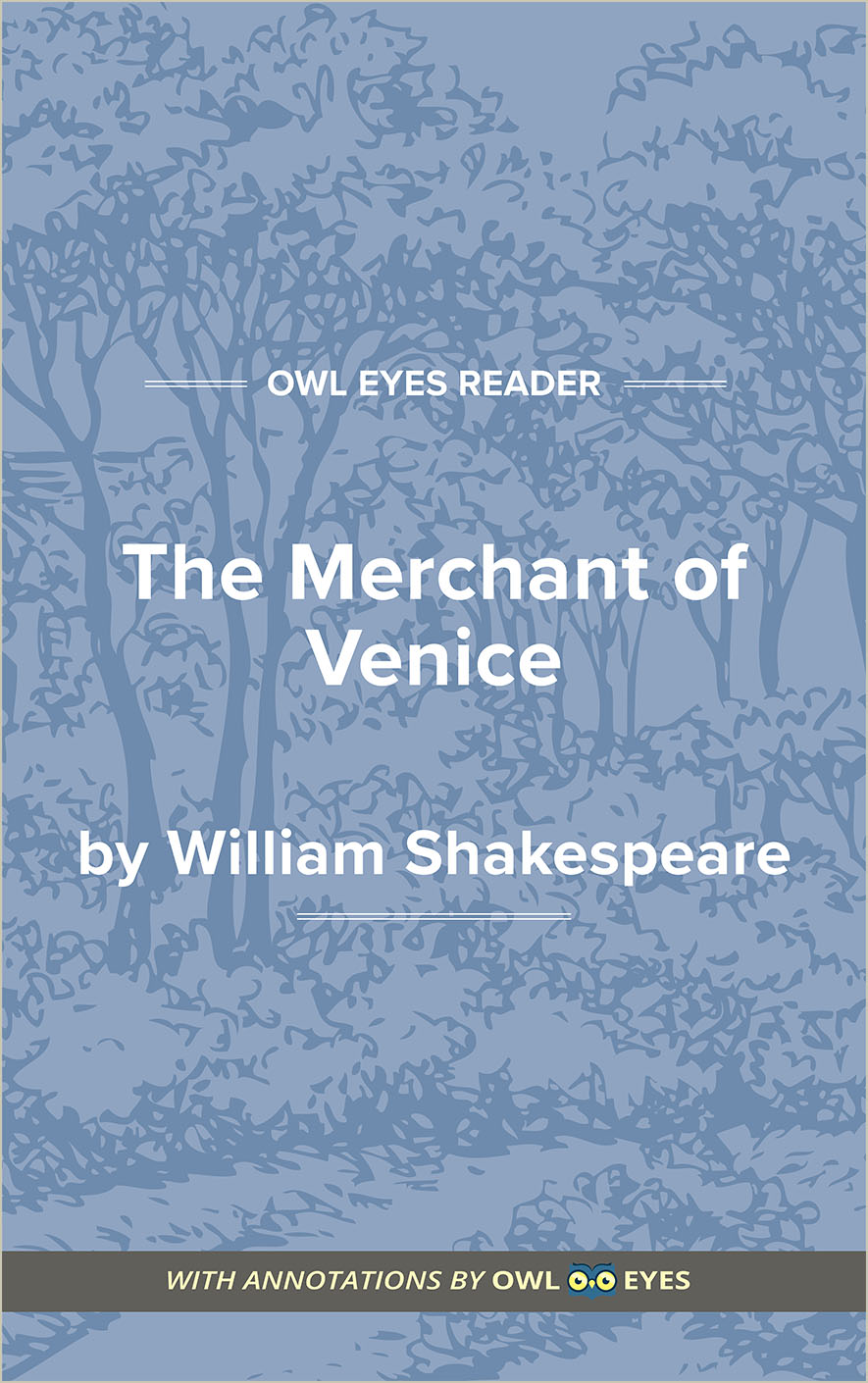Analysis Pages
Themes in The Merchant of Venice
Prejudice: The main theme of this play is prejudice on both sides: the Christians hate Shylock because he is Jewish and Shylock hates the Christians. However, Shylock gives the audience legitimate reasons for his prejudice: their religious opposition to his money lending, or usury, and active persecution of his buisness and body. The play also reveals the double standard under which Shylock lives and the despicable nature of the Christians’ hatred. Shylock is expected to show mercy when he is never shown any by the ruling class.
Money: The other major theme in the play is the importance of money to the Christians. To most of the Christians in the play, money is more important than anything else. Metaphors about love and devotion are often cast in monetary terms in order to show that value is determined by money to these characters. Even love is seen as a contractual agreement.
Playing and Perception: Throughout the play, appearances are shown to be deceptive. In the trial of the three casks, the outwardly ugly cask has the most rewarding interior to symbolize the disconnect between outward appearance and inward character. This theme, however, extends to the question of prejudice and the perception of the characters in the play. Shylock’s famous speech “Hath not a Jew eyes?” asks the audience to look further into his character and motivations rather than discrediting him as a villain. Embodied in the well-known line “all that glitters is not gold,” there is more to this story than what is on the surface.
Themes Examples in The Merchant of Venice:
Act I - Scene I
🔒"I hold the world but as the world, Gratiano;(80) A stage, where every man must play a part, And mine a sad one...." See in text (Act I - Scene I)
"maid not vendible..." See in text (Act I - Scene I)
"do buy it ..." See in text (Act I - Scene I)
"strange..." See in text (Act I - Scene I)
"Fie, fie..." See in text (Act I - Scene I)
"wind..." See in text (Act I - Scene I)
"sad..." See in text (Act I - Scene I)
Act I - Scene II
🔒"superfluity comes sooner by white hairs,..." See in text (Act I - Scene II)
Act I - Scene III
🔒"I hate him for he is a Christian:..." See in text (Act I - Scene III)
Act II - Scene II
🔒"—..." See in text (Act II - Scene II)
Act II - Scene IV
🔒"gold and jewels..." See in text (Act II - Scene IV)
"whiter than the paper..." See in text (Act II - Scene IV)
Act II - Scene VI
🔒"boy..." See in text (Act II - Scene VI)
Act II - Scene VII
🔒"All that glisters is not gold,..." See in text (Act II - Scene VII)
"carrion Death..." See in text (Act II - Scene VII)
Act II - Scene VIII
🔒"Exeunt..." See in text (Act II - Scene VIII)
"daughter..." See in text (Act II - Scene VIII)
Act II - Scene IX
🔒"iwis..." See in text (Act II - Scene IX)
Act III - Scene II
🔒"confirm'd, sign'd,..." See in text (Act III - Scene II)
Act IV - Scene I
🔒"Christian..." See in text (Act IV - Scene I)
"humbleness..." See in text (Act IV - Scene I)
"the penalty...." See in text (Act IV - Scene I)
Act V
🔒"Were you the doctor, and I knew you not?..." See in text (Act V)

